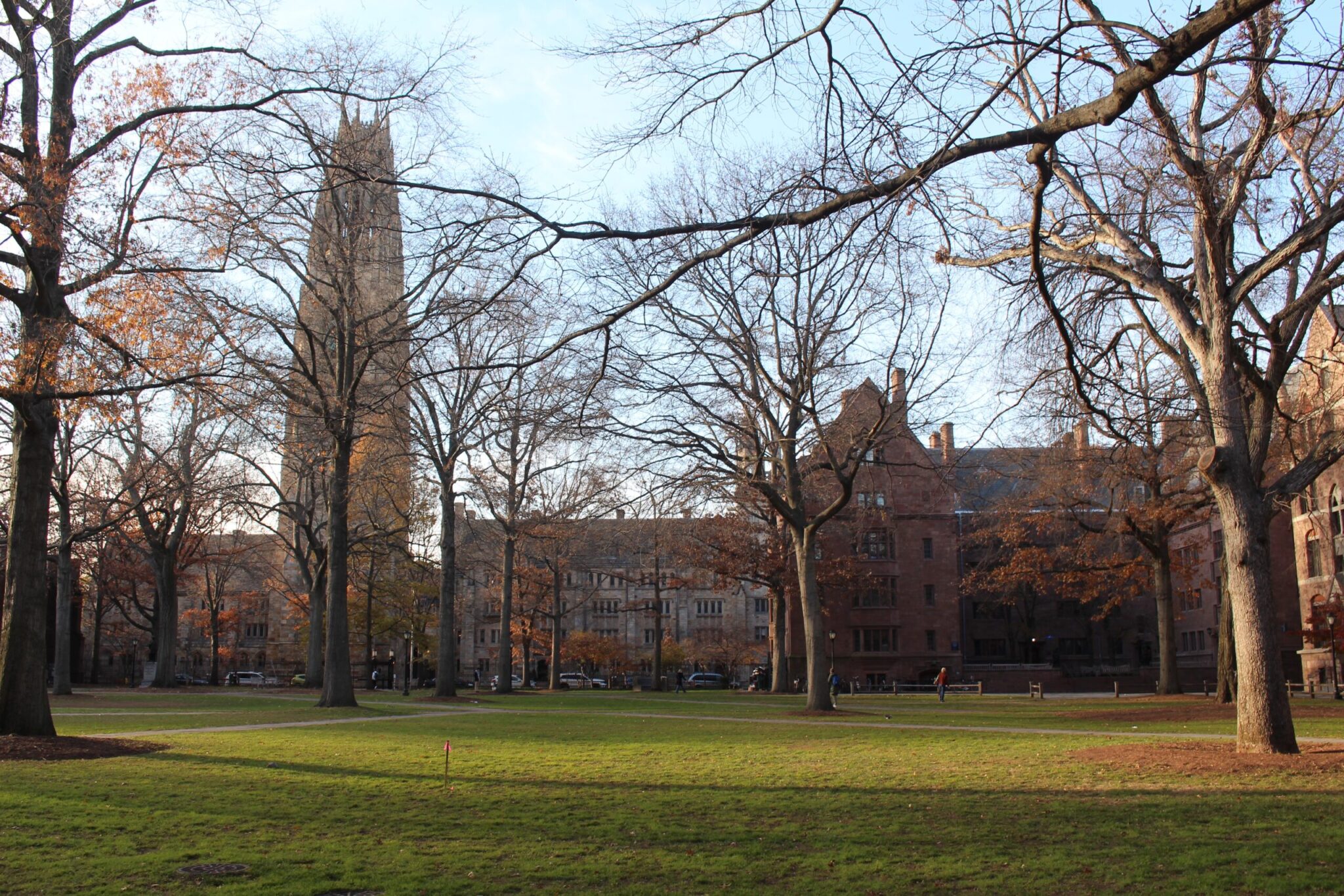Will Yale divest from weapons manufacturers?
Amid student demands that Yale divest from weapons manufacturers, University President Peter Salovey told the News that he would not intervene in the current process by suggesting that the Yale Corporation divest. He called the current process by the Advisory Committee on Investor Responsibility to revisit the University’s 2018 policy “robust” and said that he does not want to “prejudge the process.”

Toia Conde Rodrigues da Cunha, Staff Photographer
University President Peter Salovey told the News that he will not intervene in Yale’s “robust process” for revisiting investments in weapons manufacturing but said the matter is “worthy of our discussion.”
His statement comes amid continued demands from students for the University to divest from weapons manufacturers. Salovey told the News on Nov. 2 that the University’s Advisory Committee on Investor Responsibility, or ACIR — composed of faculty, students, staff and alumni — is “studying whether there are grounds to revisit” its current policy under Yale’s ethical investment framework.
Most recently, Yale Jews for Ceasefire gathered outside of the President’s House on Hillhouse Avenue Thursday evening. Among the group’s demands is a call for Yale to divest from companies involved in “military weapons manufacturing.” On Dec. 4, members of the Yale community dropped banners reading “Yale Divest From Genocide” and seven Palestinian flags from Swensen Tower — at the core of the Humanities Quadrangle.
On Friday, Dec. 1, one day before the Yale Corporation’s second meeting of the year, over 20 demonstrators taped a 60-foot banner on the door of Woodbridge Hall — the president’s office — that read “Yale Corp Divest From Weapons” and displayed the names of the thousands of Palestinians who have been killed in Gaza during the Israel-Hamas war. The banner was later removed by a student after receiving permission from Pilar Montalvo, assistant vice president for university life; Montalvo later told the News that “administrative errors” were made in allowing the poster to go up and be removed.
On Oct. 25, over 100 student protesters called on the University to divest from arms manufacturers.
“I think we have a very good mechanism with our committee on responsible investment policy for students or anybody else on campus to bring forward situations involving investments that they think present grave social harm, and to have them considered seriously,” Salovey told the News. “That committee will then recommend whether or not the corporation’s committee consider the request further … I don’t want to prejudge that process.”
According to the Corporation’s guidelines for proxy voting and divestment, “not all findings of social injury or grave social injury give rise to immediate shareholder engagement and/or divestment.”
Chair of the ACIR Heather Tookes, who is a finance professor and deputy dean for the faculty at the School of Management, wrote to the News that the Committee heard presentations from students and alumni on divestment from weapons manufacturers at its annual, open meeting on Nov. 1.
“The ACIR is aware of campus demonstrations,” the ACIR chair wrote to the News. “The committee discusses all proposals it receives from the Yale community.”
In an email to the News the same day as ACIR’s annual open meeting, Tookes added that the University’s current review of its 2018 policy — which prohibits Yale from investing in assault weapon retailers that sell assault weapons to the public but not from weapons manufacturers — began following a student presentation by the Yale chapter of Students Demand Action in the 2022-2023 academic year.
Salovey added that although the current situation differs in that it concerns “military-grade weapons sold to militaries,” this different set of issues is still “worthy of our discussion.”
“The deliberations of the ACIR are still ongoing,” Tookes wrote. “We will inform the Yale community if the process results in a modification to the current policy.”
Naina Agrawal-Hardin ’25, an organizer with the Yale Endowment Justice Coalition, wrote to the News that the “little transparency” the University presents on its investments is “absurd.” She added that the EJC has helped to increase transparency with “student research.”
She added that the responsibility “to clarify the precise scope” of the University’s investment in “exploitative industries” should fall on the ACIR, the Investments Office and the Corporation — not students.
“We’ve done the research, but it’s not about the dollar amounts,” Agrawal-Hardin wrote to the News. “Divestment is about revoking social license, and saying ‘companies that profit from mass violence have no place in Yale’s portfolio.’”
The Yale Endowment Justice Coalition was founded in 2018.







